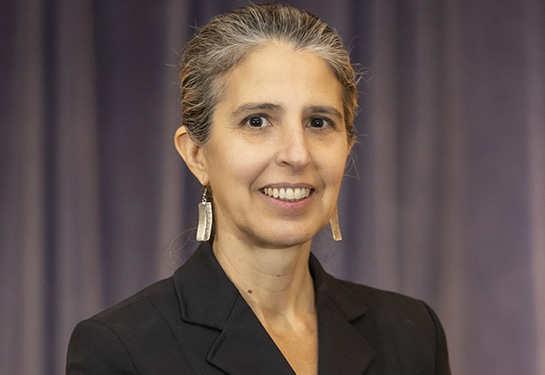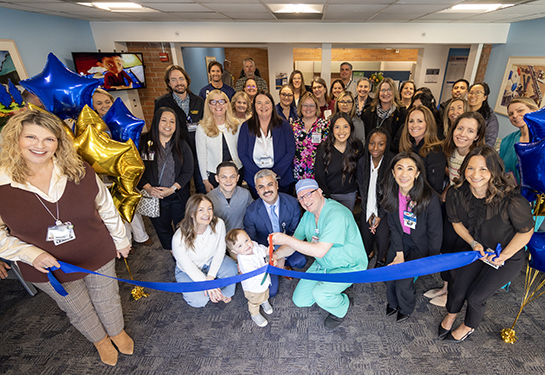Leadership Message: Normalizing conversations around perimenopause and menopause in the workplace
Dear colleagues,
Perimenopause and menopause are natural stages in the aging process that can bring a wide range of physical and mental changes, including hot flashes, sleep disruption, mood shifts, depression, and body aches. Their impact varies by individual, with some people not experiencing any symptoms. But it is important to recognize that, for those with symptoms, they can affect general well-being and work-life balance and satisfaction. People in this group can include our UC Davis and UC Davis Health faculty and staff. Just as we support those who are pregnant or raising children, we should foster a supportive environment and normalize conversations around perimenopause and menopause.
What are perimenopause and menopause?
Both are stages in the aging process for people who have had periods, marked by declining estrogen and progesterone. Perimenopause often begins in the mid-40s but may occur earlier or later. Menopause is defined as 12 consecutive months without a period, after which post menopause follows for the rest of one’s life. In the U.S., the average age of menopause is 51–52, with about 1.3 million women reaching menopause annually.
Commonly reported symptoms
- Hot flashes
- Sleep changes
- Irregular periods
- Bladder control changes
- Dryness (vagina, eyes, scalp)
- Changes in libido
- Mood changes and brain fog
- Body composition changes
- Increased UTIs
Treatment options
The menopause market is now worth billions, with many pharmacological and natural remedies available. Navigating these choices can be confusing, especially as many doctors lack specialized menopause training. Institutions like UCLA address this gap with comprehensive care programs and research.
Menopause and the workplace
Symptoms can impact job satisfaction and performance. For example, a UK survey found that 45 percent of women felt symptoms negatively affected work, and a Mayo Clinic report indicated that about 10 percent of women considered leaving the workforce due to menopause-related symptoms. While these figures require cautious interpretation, they highlight real challenges. Supporting open dialogue and education around menopause is crucial for a healthy, inclusive work environment.
Peer support at UC Davis
UC Davis leads by example, offering the Meno-Power Interest Group for monthly peer support and collaborating on webinars with the Staff and Faculty Health and Well-Being (SFHWB) team. Reasonable workplace accommodations, such as flexible work options or a fan, can help. For more ideas, review the Menopause Workplace Pledge in the UK, signed by over 2,000 employers.
Let’s continue to build a menopause-friendly workplace, learn more about this phase of life, and support our colleagues for a better work experience. See below for additional resources.
Yours in health,
Laura Fejerman, Ph.D.
Placer Breast Cancer Endowed Chair
Professor in the Department of Public Health Sciences
Associate Director, Office of Community Outreach and Engagement at the UC Davis Comprehensive Cancer Center
Relevant articles and resources
- “It is time to talk openly about menopause in academia,” by Laura Fejerman and Mariana Stern. Nature Human Behavior, 2023: https://www.nature.com/articles/s41562-023-01765-9
- “Impact of Menopause Symptoms on Women in the Workplace,” by Stephanie S. Faubion et al. Mayo Clinic Proceedings, 2023: https://www.mayoclinicproceedings.org/pb-assets/Health%20Advance/journals/jmcp/JMCP4097_proof.pdf
- Menopause Workplace Pledge in the UK has Great Resources for Workplace: https://www.wellbeingofwomen.org.uk/menopause-workplace-pledge/
- “The Menopause Guidebook,” by The North American Menopause Society
- “The Menopause Manifesto: Own Your Health with Facts and Feminism,” by Dr. Jen Gunter
- U.S Department of Health and Human Services: https://www.womenshealth.gov/menopause/menopause-resources
- North American Menopause Society: https://www.menopause.org/





